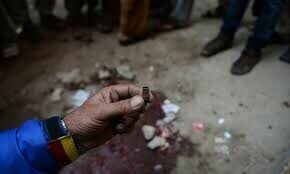FRIDAY'S deadly ambush targeting a convoy of passenger vehicles in Kurram Agency seriously threatens to scuttle the fragile peace that has barely held in the region. At least eight people were reportedly killed while several were wounded as gunmen attacked vehicles on the Thall-Parachinar road in Baggan. Several people were also kidnapped. Reports indicate that most of the victims are Shia, which points to an overtly sectarian motive to the ambush as Shia and Sunni tribes have been at daggers drawn in the region bordering Afghanistan. Observers say this is the first attack inside Kurram proper since the Feb 3 peace deal was signed between the rival factions, though there have been several acts of violence in the surrounding areas. A few days earlier, militants kidnapped over 20 tribesmen from a village festival in Baggan while Thursday's suicide attack in Hangu, in which five people, including a policeman, were killed, is indicative of the general insecurity that plagues the region.
There was guarded scepticism of the February peace deal — guaranteed as it was by the Taliban — when its details emerged. The TTP had welcomed it largely for ulterior motives, as observers said the sectarian conflict in Kurram was affecting the Haqqani network's activities inside Afghanistan. As incidents of violence continued, tribal elders called upon the government to punish violators of the truce. Yet the political administration has failed to keep the peace and has not been able to protect vital road links. While it is true that the Taliban are not a monolithic entity and Friday's ambush may have been the work of a militant faction not interested in honouring the peace deal, the fact remains that regardless of the militants' intentions, securing the area remains the state's responsibility. The government's lack of action has emboldened the militants.
The state — both the political leadership as well as the military — needs to be serious about securing Kurram and its surrounding areas. Though sectarian problems in the region date back to the Ziaul Haq era, matters have taken a turn for the worse ever since the Taliban arrived in 2007. Some say the military has focused too much on Swat, ignoring the security threats in Kurram. Also, critics point out that the security establishment claims the majority of Orakzai Agency — which borders Kurram — has been cleared of militants; if this is so why do the attacks continue? The state needs to prevent what is left of the peace process from completely falling apart. The ambush may well trigger retaliatory attacks and if the government fails to secure Kurram in the long run, this cycle of violence will never end.











































Dear visitor, the comments section is undergoing an overhaul and will return soon.